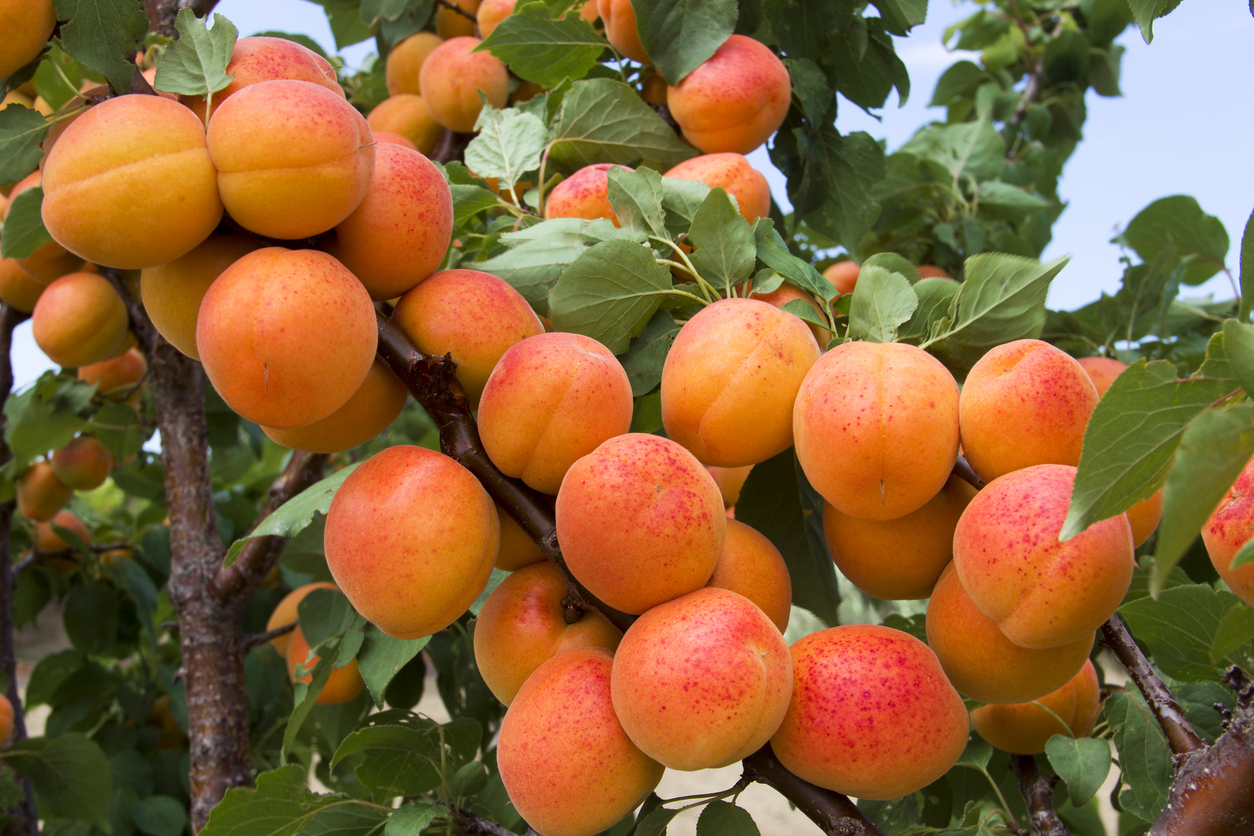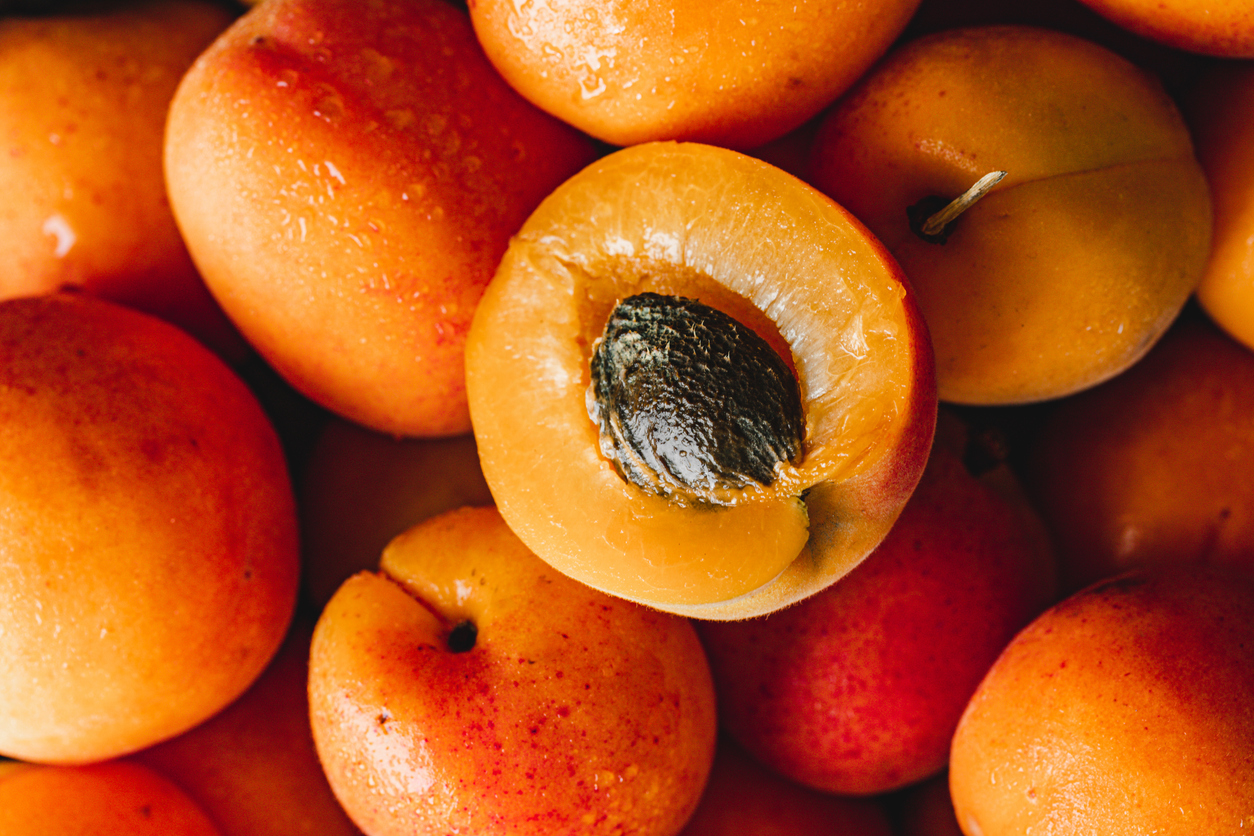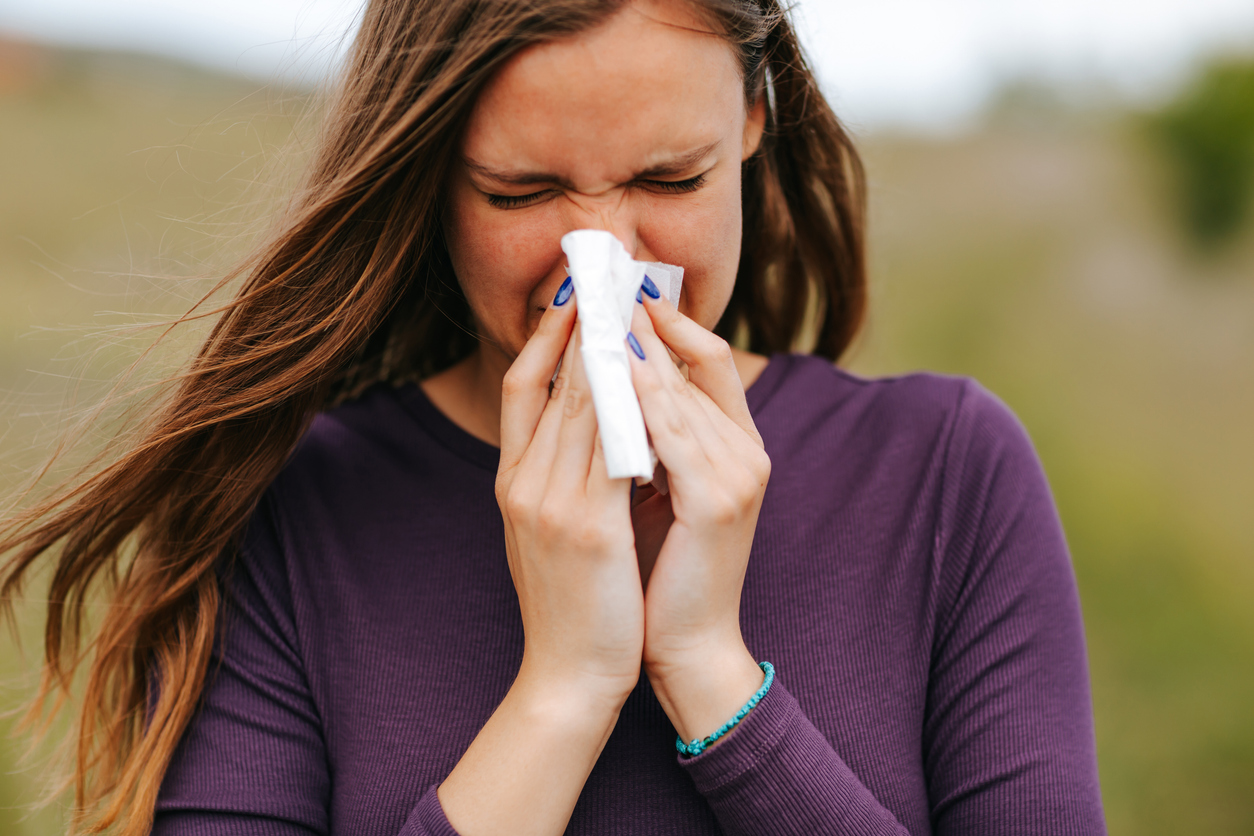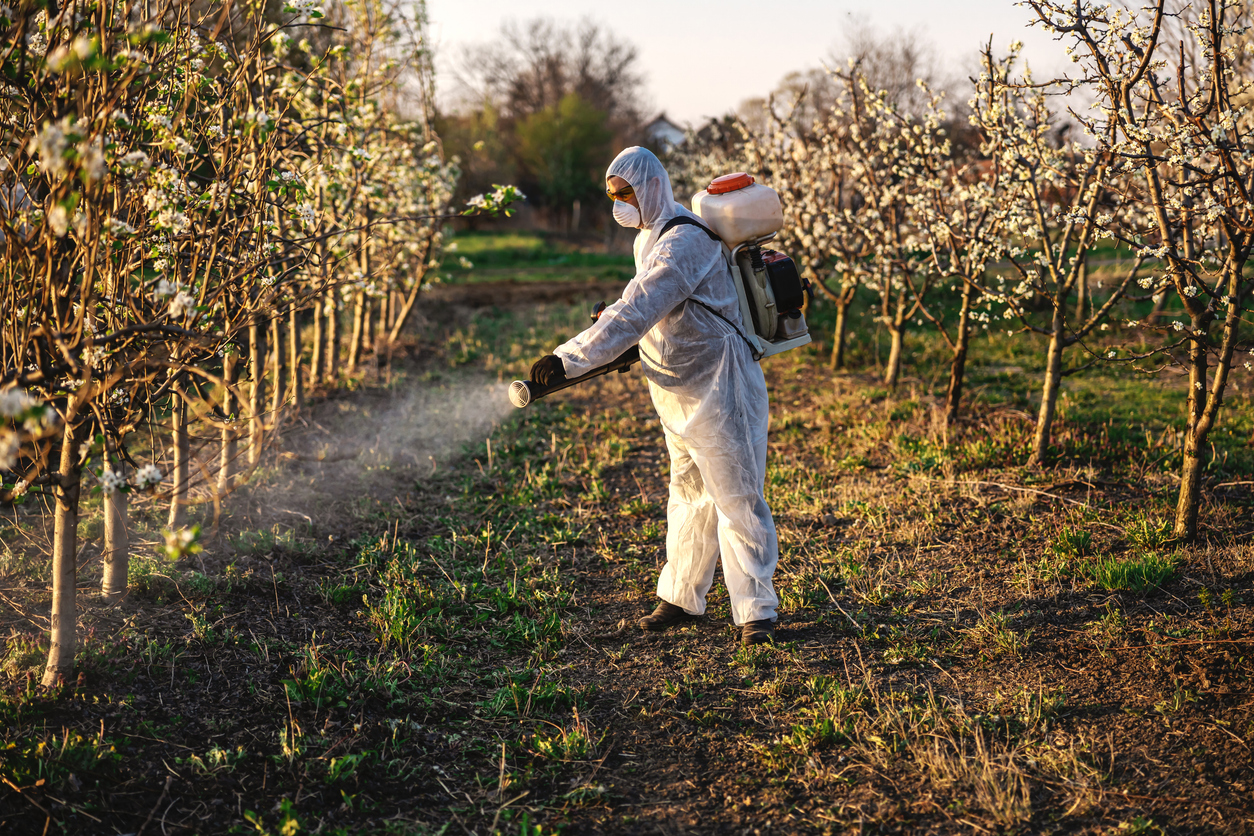When I found out that apricots are less popular than their stone fruit cousins (peaches, plums, and cherries), I knew that I had to do something to correct this injustice. I mean, itʼs even reflected in our language.
Something thatʼs peachy is very nice indeed. And referring to a person as a “peach” is a lovely compliment.
A “plum job” is one that is highly desired and comes with great pay and benefits.
And cherries are also praised in colloquial usage — a wonderful extra is a cherry on top, and when life isnʼt going your way, it is not a bowl of cherries.
But poor apricots — whose name comes from the same root as “precocious” — donʼt have any positive associations in everyday speech.
Could this be why US apricot consumption has been decreasing since the 1990s (especially processed products like dried fruit and jams)?
Fortunately, apricots are hugely popular in the Middle East and North Africa, where theyʼre revered for their health benefits and various culinary, medicinal, and environmental applications. Tagine is a North African dish that often includes apricots. And Qamar Al-Din is a popular apricot beverage in the Middle East, especially during Ramadan.
So, are apricots good for you? What about any potential downsides? Are they sustainable?
And should we start inventing colorful, positive colloquialisms involving apricots? If you can think of any good ones, youʼll be deserving of my best “apricot smile.” (No idea what that means, but it sounds nice.)
What Are Apricots?

Apricots are drupes, which it turns out is not an insult to their intelligence, but rather the word for a fruit with an outer flesh that surrounds a single inner pit (aka stone fruit).
They also belong to the Rosaceae family, which includes many other edible fruits and nuts, such as cherries, peaches, plums, and almonds. If youʼre introduced to an apricot at a formal event, you may address it by its botanical name, Prunus Armeniaca — Latin for “Armenian Plum.”
Weʼre not certain where the first apricot tree hails from; researchers have narrowed down its place of origin to somewhere between Armenia in western Asia and China. (As theyʼre more than 3,000 miles apart, the word “narrowed” is used loosely here.)
These days, the main producers of apricots are Turkey (which in 2021 supplied over 96% of the dried apricots consumed in the US), Uzbekistan, Iran, Algeria, and Italy. In the US, 75% of the apricots harvested come from California.
What Do Apricots Taste Like?
Apricots are sweet and juicy, with a tart and fragrant taste thatʼs sometimes described as a cross between a peach and a plum. You can enjoy them fresh, dried, or cooked in various dishes.
Most apricot varieties are a golden orange color, although there are also yellow, pink, and white types.
Apricot Nutrition

One cup of fresh apricots contains the following nutrients:
- 79 calories
- .64g fat
- 18.3g carbohydrates
- 3.3g fiber
- 15.2g sugar
- 2.3g protein
It also provides 18% of the recommended daily intake of vitamins A and C (based on a 2,000 calorie per day diet), and is a good source of several B vitamins.
When it comes to minerals, apricots are not slouches. Theyʼre good sources of potassium, copper, iron, manganese, and magnesium.
Technically, apricots donʼt exactly have vitamin A, but rather precursor compounds that your body uses to synthesize the vitamin. The most prevalent is beta-carotene, which represents 60−70% of the total carotenoid content in apricots and gives the common varieties their characteristic orange color.
Apricots also deliver lutein and zeaxanthin, antioxidant carotenoids known to benefit eye health.
Dried apricots are higher in calories and sugar because the water has been removed. But for that same reason, they also contain higher concentrations of vitamins and minerals.
Top Health Benefits of Apricots
Apricots are rich in bioactive phytochemicals that contribute to their benefits to human health. Thereʼs promising research on the role of apricots and their kernels in fighting cancer, promoting heart health, and supporting a healthy gut.
Anticancer Benefits of Apricots

A 2005 study found that the pulp of a Japanese apricot variety was able to suppress the growth of several types of cancer in vitro, including that of the stomach, blood, and pancreas. Significantly, it also performed what the researchers termed “lethal action” on cancer cells that had been allowed to grow into colonies. And unlike chemotherapy drugs, the apricot pulp showed no toxic effects on noncancerous blood cells.
Since then, a lot more research on how apricots fight cancer has been published. Much of it supports traditional healing practices from around the world that utilize apricot flesh or seeds.
A 2022 review article explored the compounds in the fruit that can trigger different ways to fight cancer, such as proteins that slow down the growth of cancer cells. The article also noted other apricot-related health benefits seen in studies, including protecting the brain and heart, fighting against oxidation, boosting the immune system, and lowering high cholesterol.
Apricots and Heart Health
Apricots also appear to protect the heart. A 2012 study found that substances called melanoidins, which come from cooked apricots, can help protect human blood vessel cells from damage — damage thatʼs a key factor in heart disease. The study showed that when these cells were pretreated with apricot melanoidins, they were much less likely to be harmed by hydrogen peroxide.
Some products made from apricots, like juices, jams, purees, and seed oils, leave behind a solid residue called pomace. Long considered a waste product, itʼs now being studied for its cardiovascular benefits. A 2018 test-tube study found that apricot pomace enhanced the ability of endothelial cells to produce nitric oxide, which keeps blood vessels healthy and functioning properly.
And apricot seeds might have benefits for cardiovascular health, too. A 2022 clinical trial found that people with high cholesterol who ate bitter apricot seeds daily for 42 days improved cholesterol levels and other heart health markers. The biggest improvement was a drop in LDL (“bad”) cholesterol.
Apricots and Gut Health

Apricots contain a number of potent bioactive compounds that can be good for your gut, including flavonols, phenolic acids, and carotenoids. They are also a good source of dietary fiber. Studies have shown that dried apricots can contribute to gut health by potentially affecting gut microbiota composition and functionality in beneficial ways. Additionally, dried apricots are one of the worldʼs richest sources of phytoestrogens (trailing only soy, chickpeas, and dates), which can play a role in promoting gut health as well as contributing to balanced hormones.
Potential Risks and Considerations of Apricots
Apricot Kernels
Apricot kernels have been used in many cultures for medicinal purposes. And ongoing research has found that they may be able to fight cancer, reduce inflammation, kill harmful microbes, ease asthma symptoms, and lower cholesterol.
Even so, you may want to be careful when consuming apricot kernels. Both the health benefits and the potential risks of consuming apricot kernels may come from a compound they contain: cyanogenic glycoside amygdalin. This chemical can be toxic when the kernels are consumed raw, in either whole or powdered form.
Thatʼs why eating a lot of raw kernels poses a risk of cyanide poisoning. For this reason, itʼs not recommended to consume raw apricot kernels; there are many safer ways to get their health benefits without accumulating a potent toxin in your body!
Note: there is no risk of this when consuming the flesh of the fruit, so feel free to chow down!
You should only use apricot kernels after theyʼve been cooked (roasted or boiled) and skinned.
Another use of apricot kernels — one that Iʼm not a big fan of — is in plant milk. True, manufacturers use sweet kernels rather than bitter ones to reduce the amount of amygdalin, but there are many safer plant milk varieties on the market.
For a comprehensive look at different plant milks, and the uses and pros and cons of each, check out our article here.
Apricot Allergies
Thereʼs a condition called “oral allergy syndrome,” which basically refers to a process where you eat a food that youʼre not allergic to, but you get allergy symptoms anyway. This happens because the protein in that food resembles a substance you are allergic to, and your body canʼt tell the difference.
Youʼre most likely to experience oral allergy syndrome from apricots if youʼre allergic to birch or grass pollen.
Rarer, but still possible, is when eating an apricot triggers allergic symptoms in someone with an allergy to latex.
And some people are allergic to apricot kernels.
Alternatively, you may be fine with fresh or cooked apricots, but have a problem with the sulfites that are often added to dried fruit to keep it orange instead of letting it turn brown. Sulfite allergies can range from mild (itchy eyes and skin) to life-threatening (cardiac problems and anaphylactic shock). If you love dried apricots but want to steer clear of sulfites, fear not: There are plenty of sulfite-free options (note that they are generally brown, not orange, in color).
Sustainability of Apricots
Apricots are good for most of us, but what about farmworkers and the environment?
The good news is, apricots have a moderate environmental impact. Their carbon footprint is relatively low (0.16kg of carbon dioxide equivalent per pound of fruit, if you want to impress folks at the next climatology-themed trivia night at your local pub).
Fruit trees, in general, have been found to do a pretty good job of sequestering carbon, which can mitigate their carbon footprint even further.
Apricot trees also donʼt need a lot of water to produce fruit, somewhere around 25–30 inches of rainfall per year. In years of low rainfall, the trees do need to be irrigated, but not a lot.
Apricot agriculture takes up a significant amount of land in the Mediterranean region, with a low-to-average yield per hectare compared to other fruits (13–25 tons, if youʼre studying for the “stone fruit farming economics” category on Jeopardy!).
On the other hand, thereʼs a lot of waste involved in the distribution of fresh apricots. Because they bruise easily, packagers use styrofoam to keep them blemish-free.
Pesticides on Apricots

Apricots may be treated with a bunch of different pesticides, so theyʼre not on the Environmental Working Groupʼs “Clean 15” list. At the same time, the pesticides used are not among the more harmful ones to human health, so apricots avoid the “Dirty Dozen” category as well.
To protect yourself (and farmworkers), you can choose organic apricots when available. Otherwise, I recommend washing your apricots to remove any fungicide residue on the fruitsʼ skins.
Nonfood Uses of Apricots
Luckily, there are many nonfood uses for apricot kernels, which reduce potential food waste.
This includes apricot oil extract, which is prized in skin care products due to being high in unsaturated fatty acids and tocopherols (vitamin E).
The oil is also used in several industrial applications, including lubricants and surfactants, as well as in biodiesel production.
Embrace Apricots!
Apricots boast a rich profile of vitamins, minerals, antioxidants, and phytoestrogens. These golden orange fruits are not only versatile in culinary uses but also offer significant health benefits. Whether you prefer them fresh during the peak season, dried for a concentrated dose of nutrients, or cooked into delicious recipes, apricots provide a tasty way to enhance your health and expand your culinary life.
While there are a few risks, mainly related to eating their raw kernels, for those without allergies, apricots can be a healthy addition to a varied and balanced diet.
Tell us in the comments:
- Do you eat apricots? Why or why not?
- What are your favorite ways to enjoy apricots?
Featured Image: iStock.com/5second



